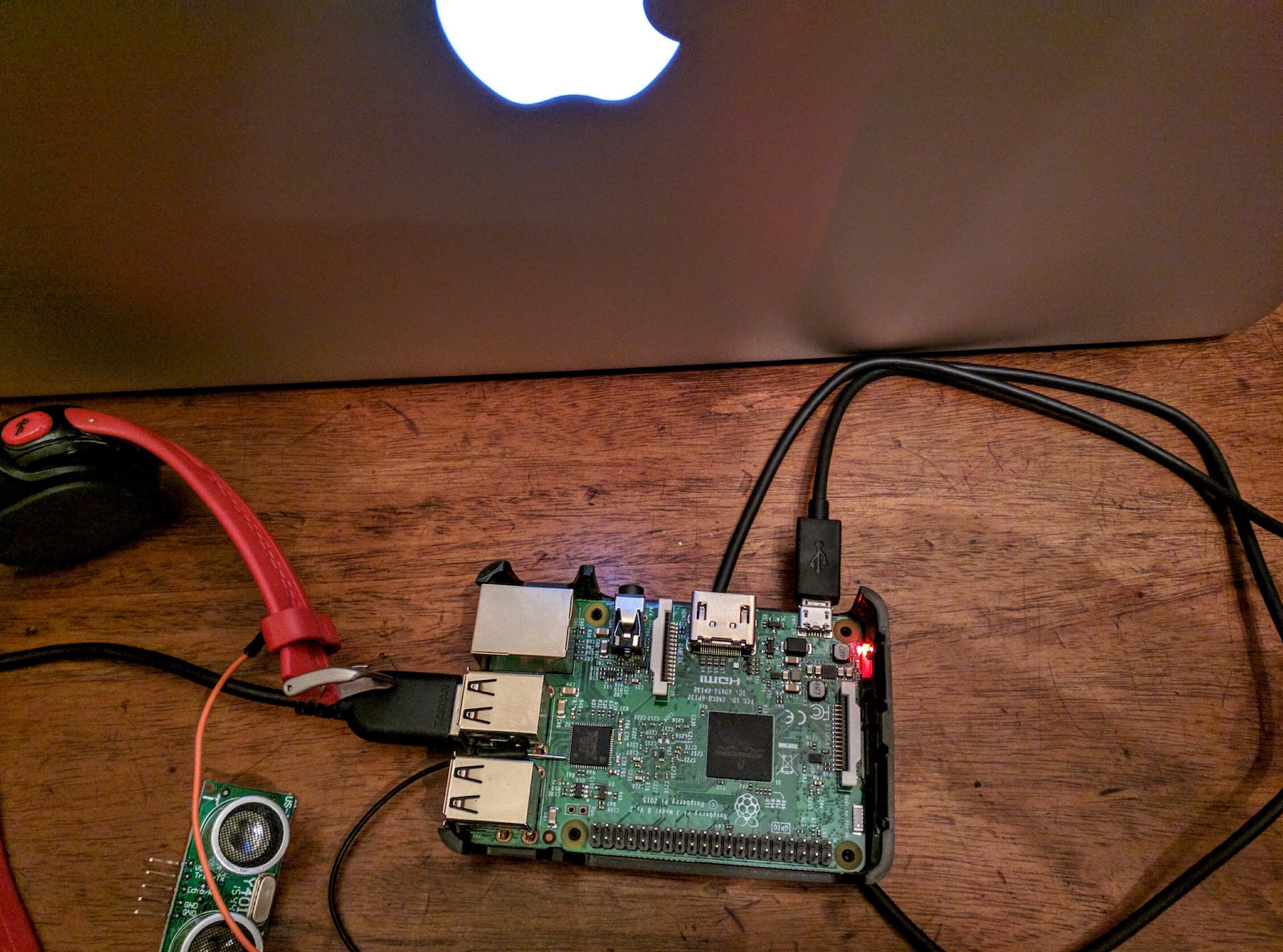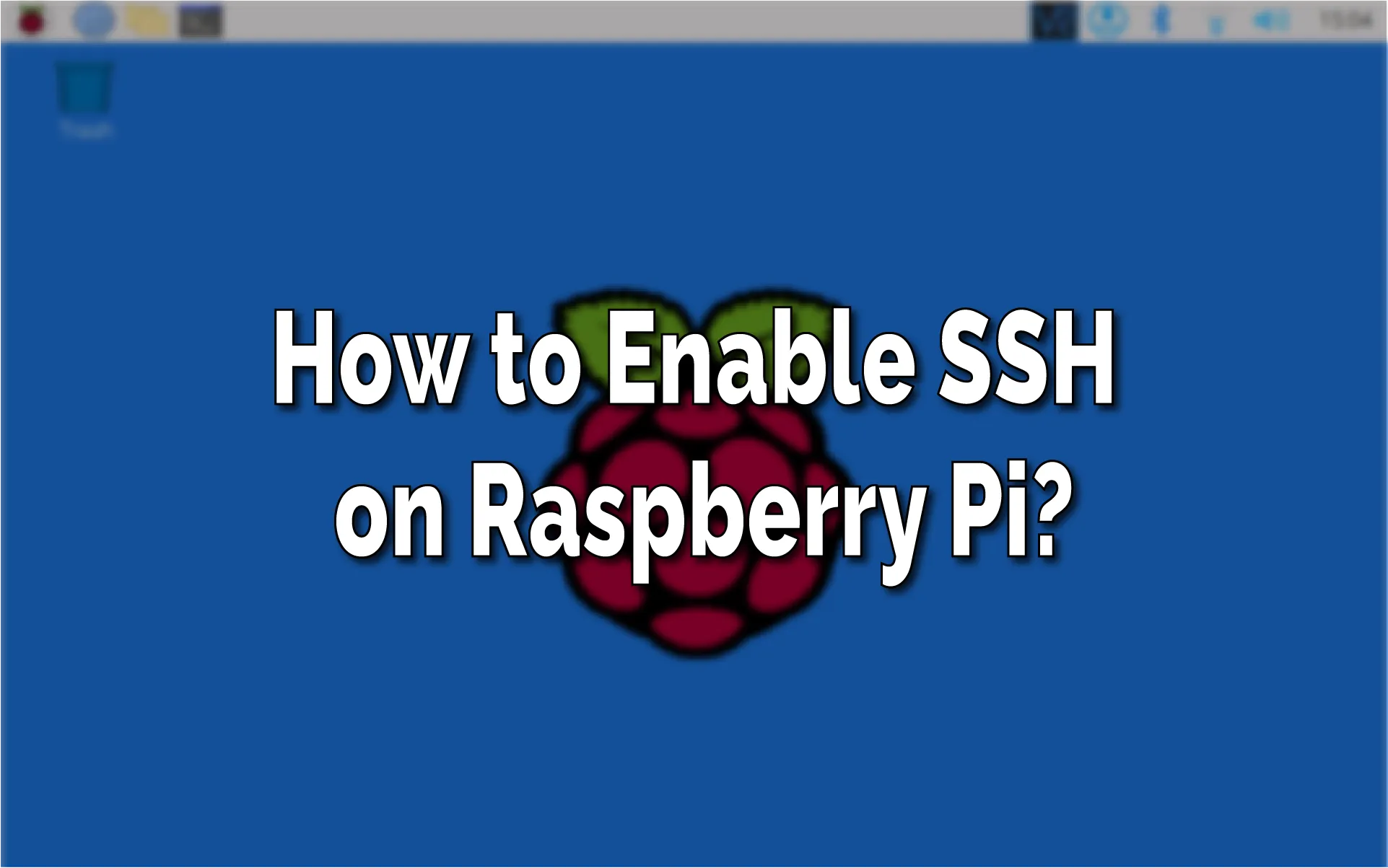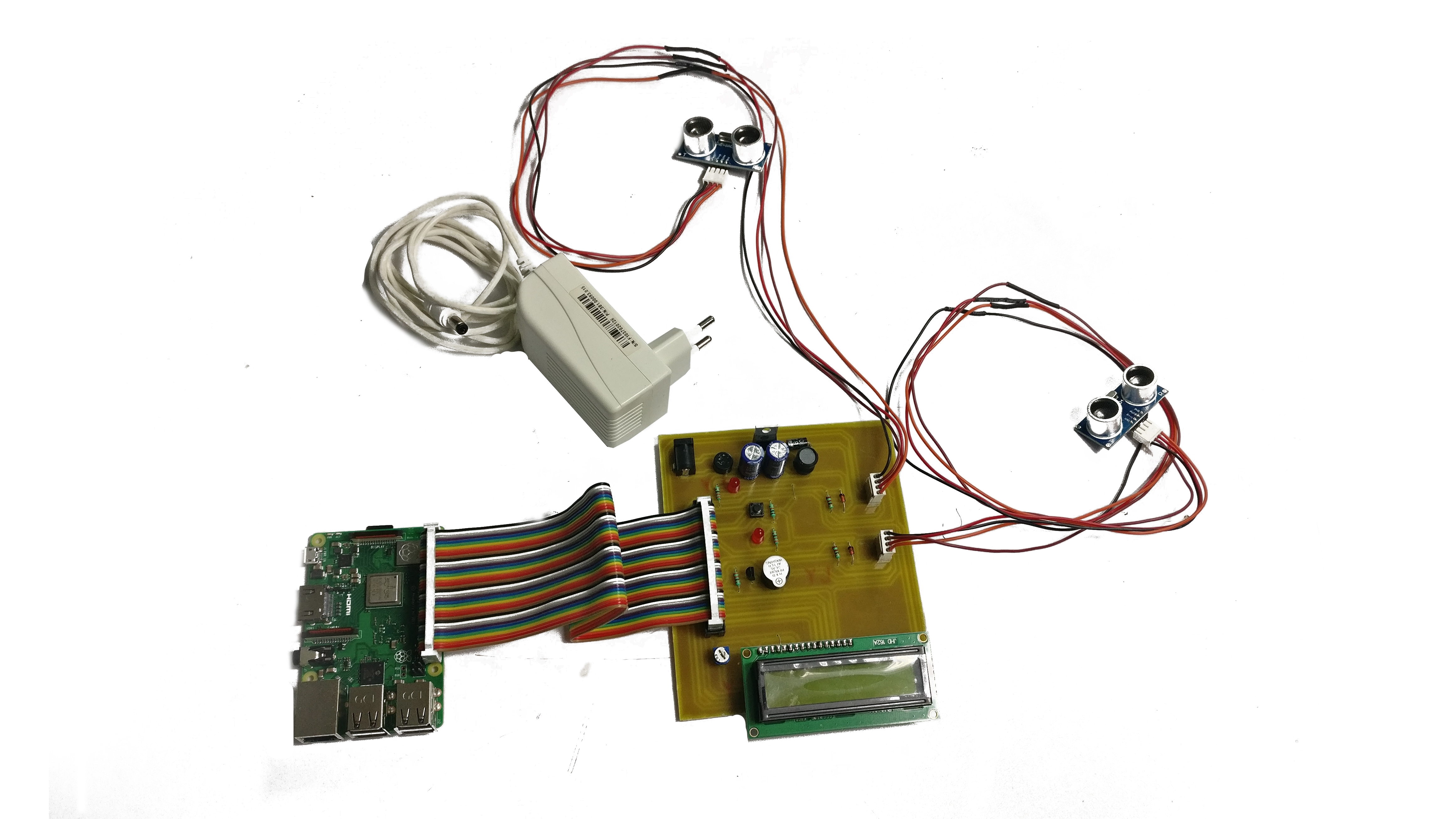Best SSH IoT Platform For Raspberry Pi: Your Ultimate Guide To Seamless Connectivity
When it comes to building IoT projects, having the right platform can make all the difference. Best SSH IoT platforms for Raspberry Pi are game changers, offering a robust foundation for your smart device dreams. Whether you're a tech enthusiast or a seasoned developer, understanding these platforms is crucial for creating innovative solutions.
Imagine this: you’ve got a Raspberry Pi sitting on your desk, ready to transform into an IoT powerhouse. But hold up, how do you connect it to the internet securely? That's where SSH IoT platforms come in. They’re like the secret sauce that makes your projects run smoothly, keeping your data safe while enabling remote access.
Now, before we dive deep into the world of SSH IoT platforms, let’s set the stage. This guide isn’t just another tech article. It’s your roadmap to mastering the best tools for your Raspberry Pi projects. We’ll cover everything from platform features to real-world applications, ensuring you’re equipped with the knowledge to succeed.
- Cracking The Case The Ultimate Guide To Baker Weights And Their Importance
- Colin Cowherd Wife Pics The Inside Story Yoursquove Been Waiting For
Why Best SSH IoT Platforms Matter for Raspberry Pi
Let’s talk about why the best SSH IoT platforms are essential for Raspberry Pi users. These platforms offer more than just remote access; they provide a secure, reliable way to manage your IoT devices. With the rise of smart homes and connected devices, having a solid SSH setup is no longer optional—it’s a necessity.
Here’s the deal: Raspberry Pi is an amazing little machine, but without the right platform, its potential is limited. SSH IoT platforms bridge that gap, allowing you to control your devices from anywhere in the world. Plus, they offer encryption and security features that protect your sensitive data from prying eyes.
Key Features to Look for in an SSH IoT Platform
Not all SSH IoT platforms are created equal. When choosing the best one for your Raspberry Pi, here are some key features to consider:
- Nathan Fielder Exwife Unveiling The Truth Behind The Mystery
- Does Kevin Costner Have A Brother Unveiling The Truth Behind The Costner Family
- Security: Look for platforms with robust encryption and authentication protocols.
- Compatibility: Ensure the platform supports Raspberry Pi and other devices you plan to integrate.
- User-Friendly Interface: A platform that’s easy to navigate will save you time and frustration.
- Scalability: As your projects grow, you’ll want a platform that can scale with you.
These features might seem basic, but trust me, they’re deal-breakers. A platform that lacks security or compatibility is just asking for trouble. On the flip side, one that’s user-friendly and scalable will make your life so much easier.
Top SSH IoT Platforms for Raspberry Pi
Now that we’ve covered the basics, let’s get into the nitty-gritty. Here’s a list of the top SSH IoT platforms for Raspberry Pi, each with its own unique strengths:
1. PlatformIO
PlatformIO is a favorite among developers for its ease of use and powerful features. It offers a seamless development environment for Raspberry Pi and other IoT devices. With built-in SSH support, you can manage your projects remotely with confidence.
Here’s why PlatformIO stands out:
- Integrated development environment (IDE) for coding
- Support for multiple programming languages
- Community-driven updates and support
2. Resin.io (Now Balena)
Balena, formerly known as Resin.io, is another top contender in the SSH IoT platform space. It’s designed specifically for IoT projects, making it a natural fit for Raspberry Pi users. Balena offers container-based solutions that simplify deployment and management.
Key benefits include:
- Containerization for easy app deployment
- Real-time monitoring and debugging
- Automated updates to keep your devices current
3. Node-RED
Node-RED is a visual tool for wiring together hardware devices, APIs, and online services. It’s perfect for Raspberry Pi users who want to create complex IoT setups without diving too deep into code. With SSH capabilities, Node-RED gives you the flexibility to manage your projects remotely.
What makes Node-RED special?
- Drag-and-drop interface for quick prototyping
- Extensive library of nodes for various functions
- Strong community support for troubleshooting
How to Choose the Right SSH IoT Platform
Selecting the best SSH IoT platform for your Raspberry Pi projects can be overwhelming. With so many options available, how do you know which one is right for you? Here’s a step-by-step guide to help you make an informed decision:
First, consider your project requirements. Are you building a simple smart home system or a complex industrial IoT solution? Your needs will dictate which platform features are most important.
Next, evaluate the platform’s security features. Look for encryption, authentication, and other safeguards that protect your data. Remember, security should always be a top priority when working with IoT devices.
Finally, check out the community and support options. Platforms with active user forums and helpful documentation can save you hours of troubleshooting.
Real-World Applications of SSH IoT Platforms
Talking about SSH IoT platforms is one thing, but seeing them in action is another. Let’s explore some real-world applications where these platforms shine:
Smart Homes: With an SSH IoT platform, you can control your home’s lighting, temperature, and security systems from anywhere. Imagine adjusting the thermostat while you’re on vacation or turning off the lights when you forget to before leaving the house.
Industrial Automation: In manufacturing, SSH IoT platforms enable remote monitoring and control of machinery. This leads to increased efficiency and reduced downtime, saving companies both time and money.
Agriculture: Farmers are using IoT to optimize crop yields and conserve resources. SSH IoT platforms allow them to monitor soil moisture, weather conditions, and more, all from a central dashboard.
Security Considerations for SSH IoT Platforms
Security is a critical aspect of any IoT project, and SSH IoT platforms are no exception. Here are some best practices to keep your devices and data safe:
- Use strong, unique passwords for all accounts
- Enable two-factor authentication whenever possible
- Regularly update your platform and firmware
- Limit access to trusted users only
Remember, even the best SSH IoT platform can’t protect you if you don’t follow basic security protocols. Stay vigilant and keep your systems secure.
Common Security Threats and How to Mitigate Them
Understanding the threats is the first step in protecting your IoT projects. Here are some common security risks and how to address them:
- Brute Force Attacks: Use strong passwords and rate-limiting to prevent unauthorized access.
- Man-in-the-Middle Attacks: Implement encryption protocols to safeguard your data.
- Malware Infections: Keep your platform and devices updated with the latest security patches.
Best Practices for Using SSH IoT Platforms
To get the most out of your SSH IoT platform, follow these best practices:
1. Optimize Your Configuration: Customize settings to match your project requirements. This includes adjusting network settings, configuring firewalls, and setting up automation rules.
2. Monitor Performance: Keep an eye on your platform’s performance to ensure everything is running smoothly. Use analytics tools to track usage and identify potential issues.
3. Document Your Setup: Maintain detailed documentation of your platform configuration and project details. This will save you time and effort when troubleshooting or expanding your setup.
Advanced Tips for Power Users
If you’re an experienced developer, here are some advanced tips to take your SSH IoT platform usage to the next level:
- Explore scripting options for automating repetitive tasks
- Integrate third-party APIs for added functionality
- Experiment with containerization for easier deployment
Future Trends in SSH IoT Platforms
The world of IoT is constantly evolving, and SSH IoT platforms are no exception. Here’s what to expect in the future:
Edge Computing: As more devices become connected, edge computing will play a bigger role in IoT. This means processing data closer to the source, reducing latency and improving performance.
Artificial Intelligence: AI integration will enhance IoT platforms, enabling predictive maintenance, anomaly detection, and more. This will lead to smarter, more efficient systems.
5G Networks: The rollout of 5G will revolutionize IoT connectivity, offering faster speeds and lower latency. This will unlock new possibilities for SSH IoT platforms and the devices they support.
How to Stay Ahead of the Curve
To stay ahead in the ever-changing world of IoT, keep learning and experimenting. Follow industry trends, attend conferences, and engage with the developer community. The more knowledge you gain, the better equipped you’ll be to tackle future challenges.
Conclusion: Take Your Raspberry Pi Projects to the Next Level
There you have it, folks. The best SSH IoT platforms for Raspberry Pi offer a world of possibilities for your IoT projects. From secure remote access to advanced automation, these platforms provide the tools you need to succeed.
So, what’s next? Take action! Try out the platforms we’ve discussed, experiment with different configurations, and don’t be afraid to push the boundaries of what’s possible. And remember, if you found this guide helpful, share it with your fellow tech enthusiasts or leave a comment below. Let’s keep the conversation going!
Here’s a quick recap of what we covered:
- Why SSH IoT platforms matter for Raspberry Pi
- Top platforms to consider for your projects
- How to choose the right platform for your needs
- Security considerations and best practices
- Future trends in the world of IoT
With the right SSH IoT platform, your Raspberry Pi projects can reach new heights. So, what are you waiting for? Get started today and see where your creativity takes you!
Table of Contents
- Why Best SSH IoT Platforms Matter for Raspberry Pi
- Key Features to Look for in an SSH IoT Platform
- Top SSH IoT Platforms for Raspberry Pi
- How to Choose the Right SSH IoT Platform
- Real-World Applications of SSH IoT Platforms
- Security Considerations for SSH IoT Platforms
- Best Practices for Using SSH IoT Platforms
- Future Trends in SSH IoT Platforms
- Conclusion
Article Recommendations



Detail Author:
- Name : Prof. Theron Funk
- Username : okon.hope
- Email : hayes.vicky@hotmail.com
- Birthdate : 1974-06-06
- Address : 8974 Boehm Ports Marquardtshire, OR 15531-3569
- Phone : (847) 249-6824
- Company : Prohaska-Ritchie
- Job : Log Grader and Scaler
- Bio : Ex tempora consequuntur et expedita. Placeat molestias ut autem reprehenderit nostrum maxime ut dolorem. Ratione ducimus explicabo atque explicabo illo aliquid.
Socials
twitter:
- url : https://twitter.com/rogers_kautzer
- username : rogers_kautzer
- bio : Placeat quod et omnis numquam eaque. Enim deleniti velit dignissimos neque ipsam. Occaecati quasi sequi ea fuga alias.
- followers : 5559
- following : 2399
instagram:
- url : https://instagram.com/rogers_id
- username : rogers_id
- bio : Error veniam fugit pariatur eos. Quisquam delectus nam voluptate soluta similique iste.
- followers : 2311
- following : 2174
tiktok:
- url : https://tiktok.com/@rogers5264
- username : rogers5264
- bio : Illum eum error voluptatem dolores saepe ut quisquam.
- followers : 6092
- following : 2518